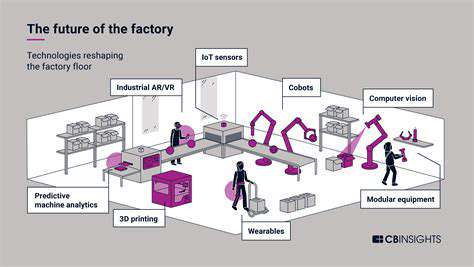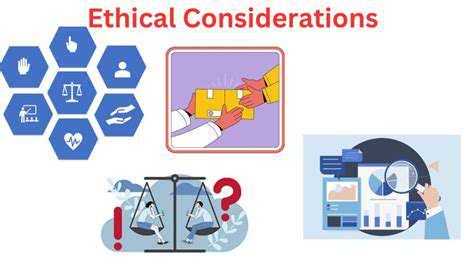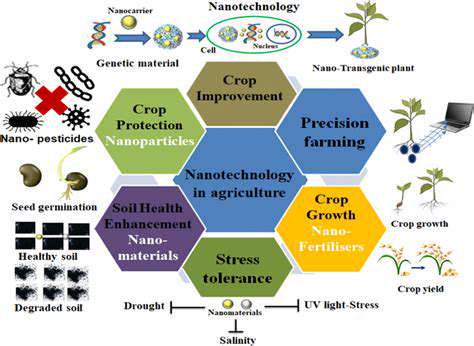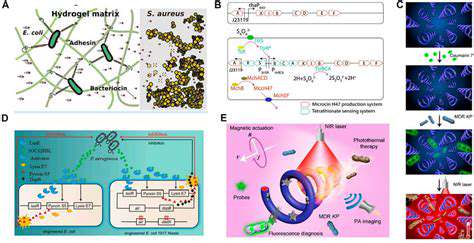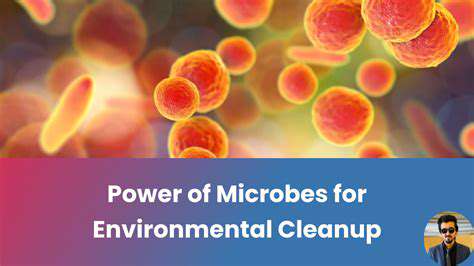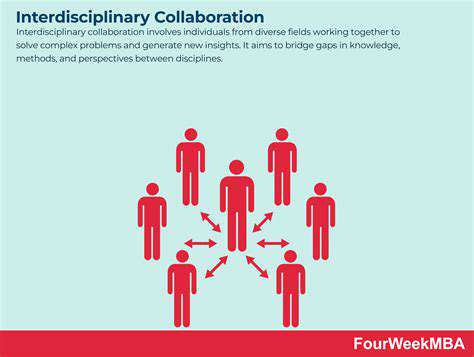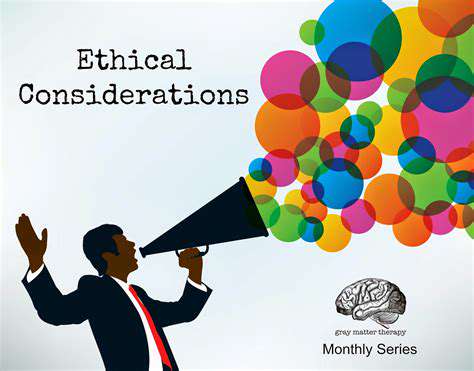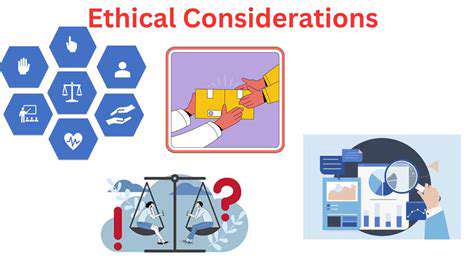Waste valorization, once considered a niche concept, has emerged as a transformative force in modern biotechnology. Rather than viewing waste as a burden, innovative thinkers now recognize its untapped potential. This paradigm shift moves beyond disposal, actively creating economic value while easing environmental strain. Biological processes offer particularly elegant solutions, converting what was once trash into treasure while dramatically cutting landfill use and pollution. As global waste volumes skyrocket and resources dwindle, these techniques become not just preferable but essential for planetary health.
The magic happens when microorganisms - nature's original recyclers - break down complex waste into usable components. Consider how breweries now transform spent grain into protein-rich animal feed, or how food scraps become nutrient-dense compost. The applications span from clean biofuels that power vehicles to bioplastics reducing petroleum dependence. Perhaps most crucially, these processes slash greenhouse emissions by preventing organic waste from rotting in oxygen-starved landfills where it would produce methane, a gas 25 times more potent than CO₂ at trapping heat. As environmental awareness grows, waste valorization stands out as a practical solution marrying ecological responsibility with economic opportunity.
Biotechnology's Role in Waste Valorization
Modern biotechnology supercharges nature's recycling abilities with precision tools. Scientists now enhance microbial strains to digest specific waste components more efficiently, like engineering bacteria that devour plastic waste. The toolbox includes everything from optimized fermentation conditions boosting output to advanced bioreactors handling industrial-scale volumes. These innovations make waste processing not just possible but profitable, turning environmental challenges into business opportunities.
Consider anaerobic digestion - a process where microbes break down organic matter without oxygen. Today's systems recover over 90% of the energy potential, converting food waste into biogas that can heat homes or generate electricity. Meanwhile, bioremediation techniques deploy specialized microbes to clean oil spills or detoxify industrial sites. The combination of ancient biological processes with cutting-edge science creates solutions that are both effective and sustainable, proving that environmental and economic goals can align beautifully.
Microbial Transformations for Waste Degradation
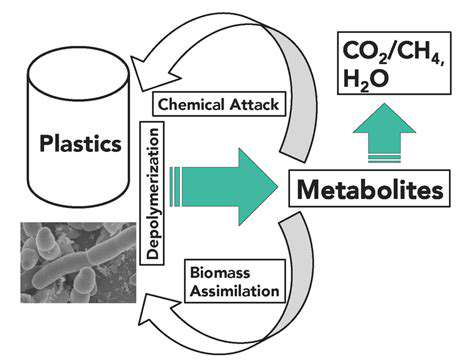
Microbial Communities and Waste Degradation
Microbial communities function as nature's cleanup crew, with different species specializing in breaking down specific compounds. In a single gram of soil, thousands of microbial species work in concert, their combined enzymatic arsenal capable of dismantling even stubborn pollutants. Understanding these intricate relationships helps scientists design more effective waste treatment systems.
Harnessing Microbial Enzymes for Bioremediation
Microbes produce enzymes so precise they can target specific pollutants while leaving surrounding ecosystems unharmed. This surgical precision makes biological solutions far superior to broad-spectrum chemical treatments. For instance, certain bacterial enzymes break down oil into harmless byproducts, revolutionizing spill cleanup. Researchers now enhance these natural tools through protein engineering, creating super-enzymes that work faster and under harsher conditions.
Wastewater Treatment and Microbial Action
Every time you flush, microbial teams go to work. Treatment plants rely on carefully balanced microbial ecosystems to remove contaminants from wastewater. These invisible workers prevent disease while protecting aquatic ecosystems, demonstrating how microbial processes safeguard both public health and environmental quality.
Industrial Waste Treatment using Microbial Processes
Factories now employ microbial solutions to handle their most challenging waste streams. Textile dyes, paper mill effluents, and food processing byproducts - all meet their match in specialized microbial communities. This biological approach often outperforms traditional methods while slashing energy use and chemical inputs, proving that industry and ecology can productively coexist.
Biogas Production from Organic Waste
Anaerobic digesters transform food waste into renewable energy while simultaneously solving waste management challenges. This elegant solution addresses two critical issues - energy security and waste reduction - with a single biological process. Farms, restaurants, and even cities now harness this technology to turn liabilities into assets.
Bioremediation of Contaminated Sites and Water
Microbial Strategies for Soil Remediation
Bioremediation offers hope for contaminated landscapes, using microbes to detoxify polluted soil naturally. Unlike harsh chemical treatments, biological methods work with nature rather than against it. Scientists now combine traditional techniques with modern enhancements, like oxygenating contaminated groundwater to stimulate native microbial populations.
Phytoremediation Techniques for Contaminated Sites
Certain plants act as living filters, their roots drawing up and storing heavy metals or breaking down organic pollutants. Sunflowers, for instance, effectively remove lead from soil, while willows thrive on sites contaminated with hydrocarbons. This plant-based approach often proves more cost-effective than mechanical cleanup methods, especially for large or hard-to-access areas.
Bioremediation of Water Sources
From oil spills to agricultural runoff, microbial solutions help purify contaminated waterways. Floating treatment wetlands combine plants and microbes to filter pollutants, while specially designed biofilters treat stormwater runoff. These nature-inspired solutions often outperform traditional treatment plants at a fraction of the cost, demonstrating how biological processes can solve complex water quality challenges.
Bio-based Products from Waste Materials
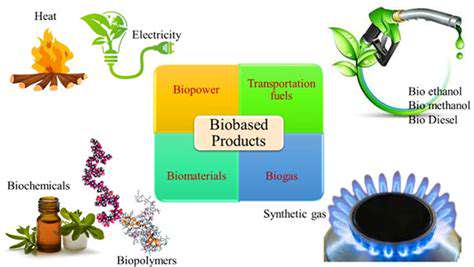
Waste Diversion and Resource Recovery
Forward-thinking companies now view waste streams as raw material sources. Agricultural byproducts become biodegradable packaging, used cooking oil transforms into biodiesel, and even CO₂ emissions get converted into building materials. This circular approach represents nothing less than a revolution in how we conceptualize resources, challenging the traditional take-make-waste industrial model.
Sustainable Material Production
Innovators now create high-performance materials from unlikely sources - mushroom-based leather alternatives, algae-derived bioplastics, and even fabrics made from pineapple leaves. These breakthroughs prove sustainability doesn't require sacrificing quality or performance, with many bio-based products outperforming their conventional counterparts.
Economic and Environmental Benefits
The bioeconomy creates jobs while reducing environmental harm. Waste-to-product businesses often locate in rural areas near agricultural waste sources, distributing economic opportunities. Every ton of waste repurposed represents both avoided disposal costs and new revenue potential, making environmental stewardship financially rewarding.
